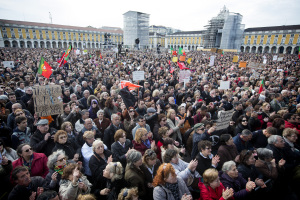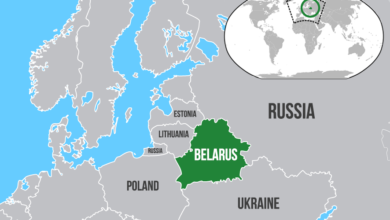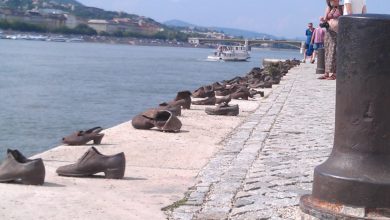 Only 11 days after receiving a governing mandate, the government of Portuguese Prime Minister Pedro Passos Coelho fell to a no-confidence vote. Coelho was supported by the right wing Portugal Ahead alliance, which won 102 seats in last month’s election. The combined vote of the Socialist Party, Left Bloc and the Communist-led Democratic Unity Coalition – 123 out of 230 seats – voted in favor of the motion.
Only 11 days after receiving a governing mandate, the government of Portuguese Prime Minister Pedro Passos Coelho fell to a no-confidence vote. Coelho was supported by the right wing Portugal Ahead alliance, which won 102 seats in last month’s election. The combined vote of the Socialist Party, Left Bloc and the Communist-led Democratic Unity Coalition – 123 out of 230 seats – voted in favor of the motion.
As voting was underway, thousands massed for a demonstration rejecting Coelho and his vicious, right-wing policies. The action was called by the General Confederation of Portuguese Workers (CGTP), the country’s largest union federation that counts many Communist Party members among its leaders. The CGTP is organizing another demonstration outside the presidential palace on Nov. 28.
This major development comes after years of relentless economic crisis that have decimated the rights of Portuguese poor and working people. Unemployment stands at 12 percent overall, and rises to 31 percent among youth. The most vulnerable have been hit the hardest since the cuts began – half a million families have lost their child benefits and over 10,000 elderly Portuguese are unable to access senior care.
The fact that the vote was held in the first place is itself an ominous sign. The fall of Coelho’s government signals the intensification of the political crisis that Portugal entered after the election.
Hard-won democracy under threat
In Portugal, as is the case in many bourgeois democracies, the Prime Minister holds executive power and a ceremonial President exists to carry out procedures related to the transition between administrations and other formalities. One of these duties include “delivering” the mandate to form a government to political parties after an election.
President Anibal Cavaco Silva, a member of Coelho’s party, delivered the mandate first to Portugal Ahead. The right wing alliance won more votes than any other single list in the October election, but fell short of an overall majority in parliament. Predictably, it failed to assemble a viable coalition.
The mandate should then have been delivered to Antonio Costa of the Socialist Party, which could form a majority government in alliance with forces to its left. However, Cavaco Silva completely disregarded the constitution and made Coelho the head of a minority government. Attempting to justify his move, the president stated, “[N]o government in Portugal has ever depended on the support of anti-European forces, that is to say forces that campaigned to abrogate the Lisbon Treaty, the Fiscal Compact, the Growth and Stability Pact, as well as to dismantle monetary union and take Portugal out of the euro, in addition to wanting the dissolution of NATO.” In other words, the Communist Party (PCP) and Left Bloc threaten the core strategic interests of Portugal and Europe’s capitalist class, and this trumps the people’s vote.
This outrageous disrespect for the population’s democratic will, while characteristic of all capitalist societies, has especially deep roots in Portugal. From 1933 to 1974, Portugal was ruled by the “New State” fascist regime, established by Antonio Salazar. All progressive organizations were banned and workers’ organizations were viciously repressed.
Despite Salazar’s ideological affinity with Hitler, Mussolini and other fascists, Portugal remained neutral in World War Two. The “democratic” imperialist states that won the war supported the regime as the Cold War began, seeing it as a valuable bulwark against the communist movement, both in Europe and Africa, where Portugal retained a number of colonies.
During this time, and continuing today, Portugal lagged behind the rest of the advanced European imperialist states. The fascist regime, while enriching the Portuguese capitalist class, repressed economic and social development. Illiteracy, poverty and other forms of suffering were rampant. These contradictions were suppressed through the use of brutal force.
In the 1960s and 1970s, powerful anti-colonial liberation movements gained strength across the Portuguese empire, including historic organizations like the Popular Movement for the Liberation of Angola and the African Party for the Independence of Guinea-Bissau and Cape Verde. At the same time, internationalist, communist-led struggle seriously challenged the fascist regime at home. A powerful anti-fascist organization arose inside the Portuguese military, called the Armed Forces Movement (MFA).
Under such combined pressure, Salazar fell and the colonies were liberated. Unfortunately, the very real potential of a social revolution was held in check by a coalition of forces, including the Socialist Party, Communist Party and MFA, among others, who restored basic democratic rights while retaining capitalism.
With this history of repression and victorious struggle, the Portuguese people and especially the left view President Cavaco Silva’s actions with grave seriousness. This development also exposes the hypocrisy of the European Union, which claims to cherish democracy but overrules the will of the people whenever it is inconvenient for capital.
Left-wing unity government
Cavaco Silva’s position is becoming more absurd by the day, as the Left Bloc and Democratic Unity Coalition have publicly stated their willingness to back a Socialist Party government in parliament – although without taking part in the cabinet. While he is still refusing to hand over the mandate to Costa, he cannot call new elections until March and may make the calculation that such an extended period of severe uncertainty is even less favorable than a left government.
The basis for this unprecedented left unity is common opposition to the austerity measures implemented by Coelho and the Troika – the European Union, European Central Bank and International Monetary Fund. In a similar scenario as the one imposed on Greece, the heavily indebted Portuguese state agreed to a memorandum with the Troika, which lasted from 2011 to 2014.
In exchange for nearly $100 billion dollars to bail out the big banks, Coelho’s government decimated pensions and wages, rolled back collective bargaining rights, privatized public assets and took other measures to deepen the misery of poor and working Portuguese. Coelho’s actions often went even further than what the Troika demanded, earning him the hatred of the working and much of the middle classes. In response to these brazen attacks, the largest demonstrations since the 1974 revolution have taken place and the labor movement has repeatedly shut down the country in general strikes.
Significant differences exist among the left forces as well. The Socialist Party is a ruling class party that is fully committed to the maintenance of the capitalist system and state. It was in fact the Socialist Party Prime Minister Jose Socrates who signed the austerity agreement with the Troika in 2011. Although it has more radical roots, it plays a role similar to the Democrats in the United States, representing sections of the elite that prefer to “bend so as not to break”.
The Communist Party, on the other hand, advocates for a revolutionary break with the system. Unlike many of the large or formerly large communist parties in Western Europe, the PCP has not renounced the seizure of power in favor of a strategy focusing on winning seats in parliament and the government. This is a main reason that large sections of the Portuguese ruling class so firmly and arrogantly refuse to even consider the possibility of a PCP-backed government.
Fault lines also exist when it comes to the project of European integration itself. The PCP opposes the European Union, rightly viewing it as an instrument for the continent’s ruling class to push a reactionary offensive that rolls back the gains won by poor and working people. The Socialist Party is fully in favor of the EU, with the Left Bloc falling somewhere in between. There are similar disagreements over Portugal’s membership in the imperialist NATO alliance.
Leninist tactics in the struggle against austerity
As the experience of the SYRIZA government in Greece shows, it is impossible to escape austerity and break the shackles of the Troika while remaining inside the Eurozone and European project generally. The PCP has no illusions about this. Its decision to supply the Socialist Party with votes of confidence for the time being is an application of Leninist tactics, designed to heighten the contradictions that presently exist and bring workers and the oppressed a step – or many – closer to seizing power.
In a statement explaining its agreement with the Socialist Party, the PCP argued that,
“The Portuguese people gave a clear sign that they definitely wanted to see out of their lives the [right wing] PSD/CDS government and aspired for a change of policy.
“It was this expression of demand for a change in the national political life that the PCP answered by immediately announcing the rejection of a PSD and CDS government to be presented to the Assembly of the Republic and announcing to be fully available to build solutions which guaranteed a response capable of ensuring economic development, restoration of income and rights, valorisation of wages and pensions, promotion of employment and combating injustice, restoration of the full right to health and education, ensuring sound social security and higher levels of social protection.
“We worked towards this objective in a serious and committed way. With the directness and frankness for which we are known. With full respect for the positions and options of the PS, without disguising difficulties or hiding differences, affirming our independence and identity, without waiving our Programme and Project.”
First, the PCP aims to meet the masses of people where they are, not where they would like them to be. There is mass, militant disgust with austerity and the hated politicians that implement it on behalf of the big international banks – but not yet massive rejection of the Euro or European Union.
The Communist Party is now in a position to demonstrate the dead-end nature of the Socialist Party’s program in practice, not just rhetoric. If Costa backs off from his anti-austerity pledges to satisfy the European Union, as he inevitably must, the PCP would be in a position to bring down the government on behalf of the betrayed electorate and win over a section of the Socialists’ base.
By staying outside the government, the PCP retains its full ability to call the people into the streets. This is another essential element of Leninism – relying ultimately on the strength and determination of the people to take advantage of favorable conditions and strike the final blow. In the recent period the leading force of the class struggle in terms of mass mobilizations has been the communist-led CGTP.
As the world crisis of capitalism drags on, hope in a whole new kind of society is reviving in many parts of the world. But it will take more than just hope to win – innovative strategies and tactics tailored for each national situation will be needed. Revolutionary forces in Portugal have opened up an important new front in this effort.




